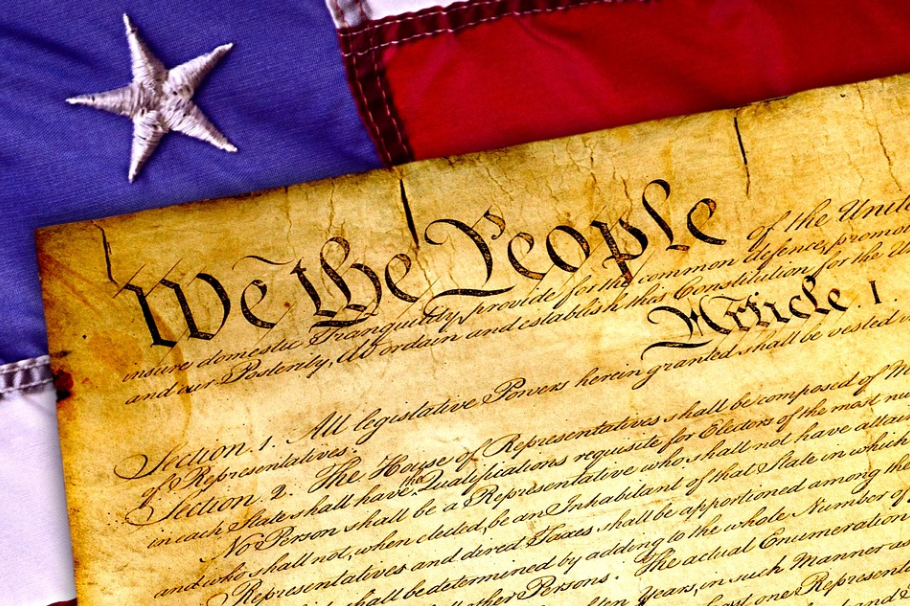Today, September 17, is Constitution Day, the 236th anniversary of our nation's founding document. Every Constitution Day for the past several years, I've written an op-ed highlighting the unique features that make our Constitution so exceptional. These pieces focused on the Constitution's separation of powers, its protections of individual liberty in the Bill of Rights, and its federalist structure, among its many other virtues. This year, I'd like to step back and focus on something more fundamental: how we read the Constitution in the first place.
The last few decades have seen a sea change in how courts interpret constitutional text. For much of the 20th century, judges on the U.S. Supreme Court and across the country favored an approach to judging known as "living constitutionalism." According to this theory, the Constitution's text is just a starting point from which judges can add or subtract based on their own policy preferences and their perception of "evolving" social norms.
Under the banner of living constitutionalism, judges created all sorts of unwritten rights: a right to abortion, a right to physician-assisted suicide, a right for rapists and child rapists to be exempt from the death penalty, and so on. At the same time, living constitutionalist judges often overlooked other rights actually spelled out in the Constitution's text, including the right to keep and bear arms and the right of the States to govern themselves without undue federal interference.
But over the past few decades, that's all started to change, thanks to the ascendance of a competing judicial philosophy: originalism. Unlike living constitutionalists, originalists believe that the meaning of the Constitution is found in its words, and that those words carry the same meaning as they did in 1787. If that philosophy sounds simple, that's because it is. Originalist judges believe that a judge's job is simply to understand and apply the Constitution's text, not to alter or "update" that text based on policy considerations.
Originalism has many merits, but first among them is respect for the rule of law. By anchoring legal interpretation to the Constitution's original meaning, originalism guards against judicial activism, preserving the delicate balance of power among the three branches of the federal government and between the federal government and the States. It was this commitment to the rule of law that recently led the Supreme Court to overrule Roe v. Wade's invention of a "fundamental right" to abortion, thereby returning that issue to the elected branches and the States.
In the same vein, originalism also preserves democratic accountability and popular sovereignty. When judges apply the original meaning of the Constitution, they defer to the will expressed by the American public – via their representatives who ratified and amended the Constitution – rather than imposing their personal beliefs through decree. Originalism acknowledges that the People have the power to change the Constitution through the amendment process, but it does not allow judges to invent amendments on their own.
Another core virtue of originalism lies in its commitment to preserving the constitutional rights and liberties of individual Americans. By adhering to the Framers' original understanding, originalism protects the fundamental freedoms enshrined in the Bill of Rights and other amendments. This approach resists the temptation to reinterpret these rights through a modern lens, ensuring they remain resilient against the influence of transient cultural trends. In keeping with this principle, originalist justices on the U.S. Supreme Court recently held that States seeking to enact social-justice agendas cannot force religious speakers to convey messages that violate their conscience. By defending our God-given rights and liberties, originalism supports the principles of free speech, religious freedom, and due process that form the bedrock of American society.
So this Constitution Day, let's take a moment to celebrate originalism! Through its respect for the original meaning of our founding document, this approach upholds the rule of law, preserves popular sovereignty, secures individual liberties, and promotes stability in our legal system. In doing so, it ensures that the U.S. Constitution continues to protect the rights of its citizens for generations to come.
Jay Mitchell is an Associate Justice on the Supreme Court of Alabama.
The views and opinions expressed here are those of the author and do not necessarily reflect the policy or position of 1819 News. To comment, please send an email with your name and contact information to Commentary@1819news.com.
Don't miss out! Subscribe to our newsletter and get our top stories every weekday morning.










